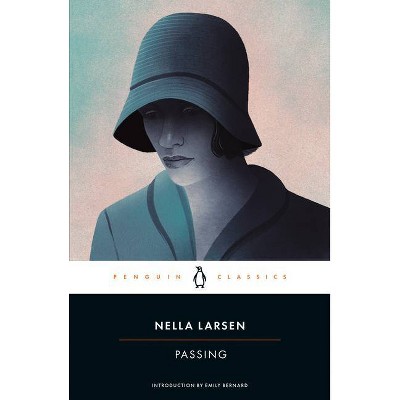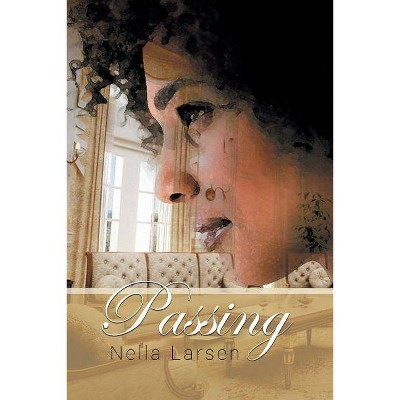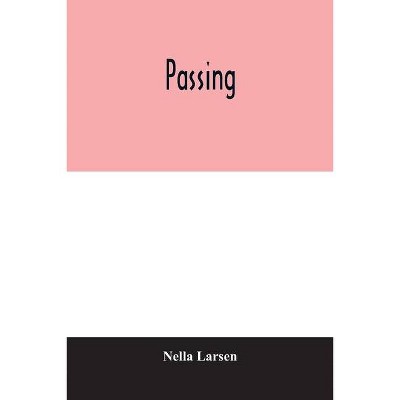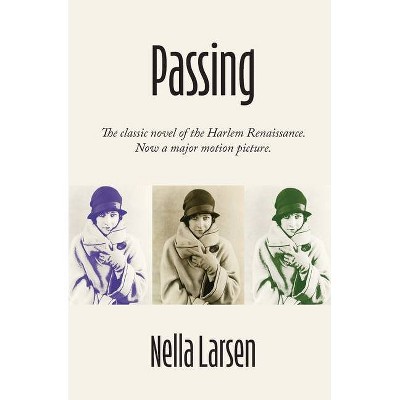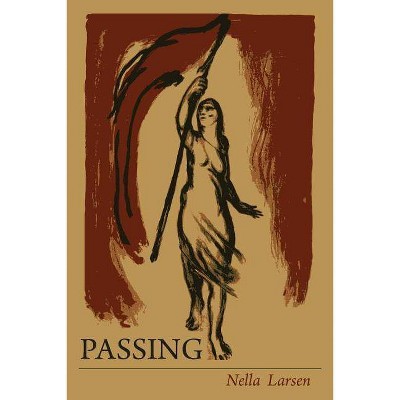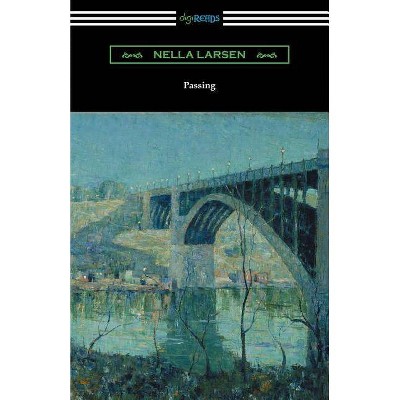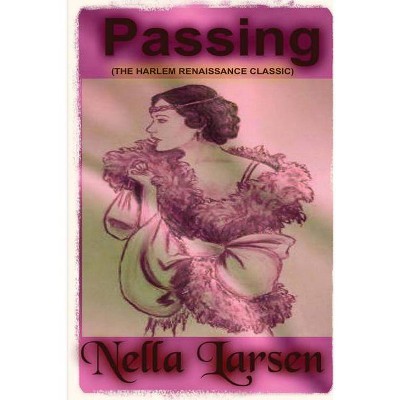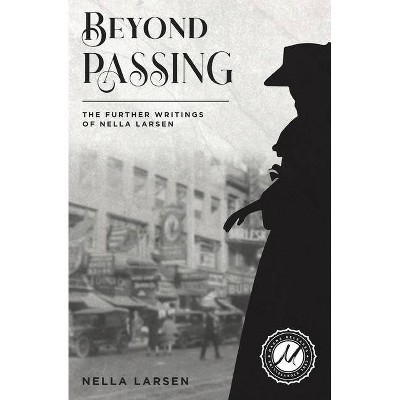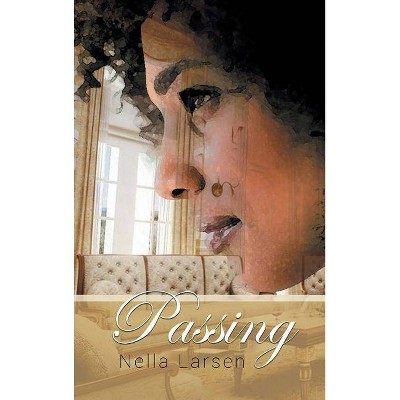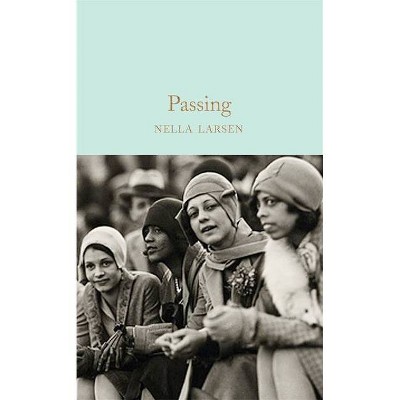Passing - (Restless Classics) by Nella Larsen (Paperback)
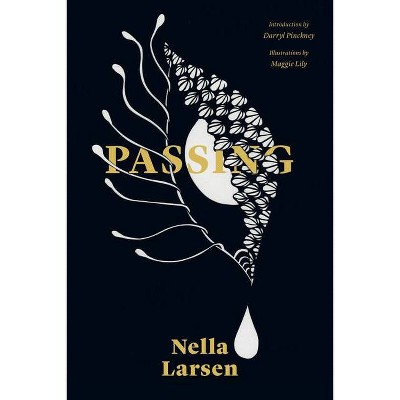
Similar Products
Products of same category from the store
AllProduct info
<p/><br></br><p><b> About the Book </b></p></br></br>"First published in the United States of America by Alfred A. Knopf Inc., 1929" -- Title page verso.<p/><br></br><p><b> Book Synopsis </b></p></br></br><p><b>Restless Classics presents the ninetieth anniversary edition of an undersung gem of the Harlem Renaissance: Nella Larsen's <i>Passing</i>, a captivating and prescient exploration of identity, sexuality, self-invention, class, and race set amidst the pealing boisterousness of the Jazz Age.</b> <p/>When childhood friends Irene Redfield and Clare Kendry cross paths at a whites-only restaurant, it's been decades since they last met. Married to a bigoted white man who has no idea that she is African American, Clare has fully embraced her ability to "pass" as a white woman. Irene, also light-skinned and living in Harlem, is shocked by Clare's rejection of her heritage, though she too passes when it suits her needs. This encounter sparks an intense relationship between the two women who, as acclaimed critic and novelist Darryl Pinckney writes in his insightful introduction, reflect Larsen's own experience of being "between black and white, and culturally at home nowhere." <p/>In a culture intent on setting boundaries, Clare and Irene refuse to adhere to expectations of gender, race, or class, culminating in a tragic clash of identities, as their relationship swings between emotional hostility and intense attraction.</p><p/><br></br><p><b> Review Quotes </b></p></br></br><br><p><i>Quicksand</i> and <i>Passing</i> are novels I will never forget. They open up a whole world of experience and struggle that seemed to me, when I first read them years ago, absolutely absorbing, fascinating, and indispensable.</p>--Alice Walker<br><br><p>"<i>Passing</i> broke literary ground as the story of two racially and sexually ambiguous women written by another. Social boundaries can be permeated, but not without cost.</p>--Natalie Cate "The Guardian, 1000 novels everyone must read"<br><br><p>"[<i>Passing</i>] is about changing definitions of concepts like race and gender, and the inextricable relationship between whiteness and blackness. It is a meditation on the uneasy dynamic between social obligation and personal freedom. It dramatizes the impossibility of self-invention in a society in which nuance and ambiguity are considered fatal threats to the social order."</p>--Emily Bernard "Electric Literature"<br><br><p>"I have read and re-read <i>Passing</i> more than a dozen times. Each time I think I can hear Larsen's own voice more clearly: asking, demanding really, that each of us abandon the labels we've been assigned and celebrate the story that we are."</p>--Heidi W. Durrow "NPR"<br><br><p>"Nella Larsen didn't just eschew tribes -- she never had one to begin with.... Unsparing on the madness of racial classification but frank, and very beautiful, on the lure of racial belonging."</p>--Parul Sehgal "The New York Times"<br><br><p>"Nella Larsen's <i>Passing</i> is one of those American classics that I've always meant to get around to. A new edition is out today from Restless Books, with a handsome cover (and interior illustrations, all by Maggie Lily) and an introduction by the novelist and critic Darryl Pinckney. If I'm going to tackle a classic, I like to have a teacher to help me along the way.... It's a remarkable book, and Maggie Lily's dark illustrations end up feeling very appropriate."</p>--Rumaan Alam "The New York Times"<br><br><p>Discovering Nella Larsen is like finding lost money with no name on it. One can enjoy it with delight and share it without guilt.</p>--Maya Angelou<br><p/><br></br><p><b> About the Author </b></p></br></br><p><b>Nella Larsen</b> was born Nellie Walker in 1891 in Chicago. Her mother was a Danish immigrant and her father an immigrant from the Danish West Indies. Larsen attended school in all white environments in Chicago until she moved to Nashville to attend high school. Larsen later practiced nursing, and from 1922 to 1926, served as a librarian at the New York Public Library. After resigning from this position, Larsen began her literary career by writing her first novel, <i>Quicksand</i> (1928), which won her the Harmon Foundation's bronze medal. After the publication of her second novel, <i>Passing</i> (1929), Larsen was awarded the first Guggenheim Fellowship given to an African American woman, establishing her as a premier novelist of the Harlem Renaissance. Nella Larsen died in New York in 1964. <p/><b>Darryl Pinckney</b>, a longtime contributor to <i>The New York Review of Books</i>, is the author of two novels, <i>Black Deutschland</i> and <i>High Cotton</i>, and two works of nonfiction, <i>Blackballed: The Black Vote and US Democracy</i> and <i>Out There: Mavericks of Black Literature</i>. <p/><b>Maggie/Malachi Lily</b> is a shapeshifting, black, nonbinary artist and moth from Philadelphia, PA. Seeking to combat our present day cravings for instant gratification and toxic individualism, they create works of art, literature, and programming that resonate spiritual light. They hope their work causes you to want to curl up in the sun and ponder, ideally with a cat.</p>
Price History
Cheapest price in the interval: 16.39 on November 8, 2021
Most expensive price in the interval: 16.99 on October 22, 2021
Price Archive shows prices from various stores, lets you see history and find the cheapest. There is no actual sale on the website. For all support, inquiry and suggestion messages communication@pricearchive.us
